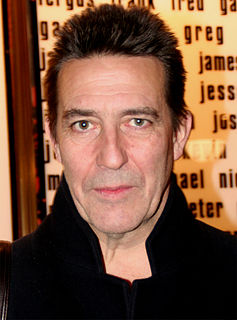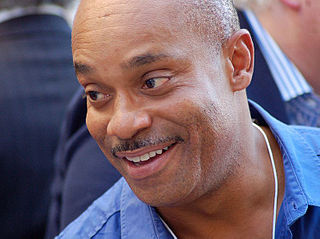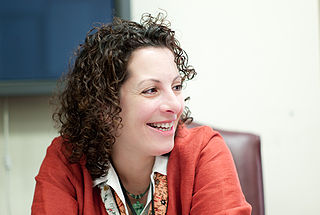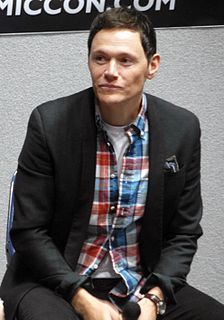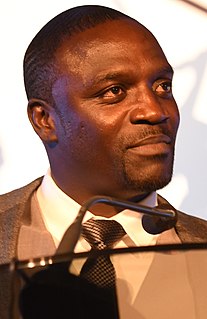A Quote by Pearl Cleage
I'm not one of those playwrights who says, 'Show up, hit your marks, and don't talk to me!' I always want to hear from the other artists involved, whether it's the director, the lighting tech, or the actors.
Related Quotes
When somebody can't reveal what they're after - whether by word or by how the camera is set up, lighting, etcetera - it's like an electronic beep beep; it interferes very much with what we actors can do. And, after all, the director wants the actors to be bringing forth the best that they can, according to whatever vision he has.
I learn a lot as a director from acting in other people's films and just in general. I want to try and be as involved in the art of filmmaking as possible. I feel that the only way to really do that is to take on as many roles as possible, whether it be as an actor, an editor, a director, a cinematographer. Basically, I like to help and be involved, so anything anybody asks me to do, my first reaction is to say "Yes."
I've never like had a system or a program, I always think that I don't know how to act. I'll adapt to any director because I don't really have a set way that I do things. If a director hires me and says, "I want you to get started right now and do this research, this research, this research and I want you to have every line memorized before you ever show up for the first day," then that's what I'll do.
Theater is about interpretation and what an actor and what a director brings to a piece too. I'm open to it every time I work with a director and a group of actors. I have to be open to that interpretation. I'm not one of those hysterical playwrights that come and say, "This is not what I intended to do." It's one rendition of the piece.
I know in Britain with 'Doctor Who' all the classic actors, and the people who you'd really want to, work on the show. I like that the fact that 'Torchwood' has actors that want to be involved from the stage. It has raised our game, and I'm just happy for good actors who want to be in sci-fi shows who love the genre.
There's always peripheral things that you like that you don't know, but starting with whatever his British influences are, are some of my favourite artists, and the American things are what I grew up on as well. In the end, for me, it's those foundations of the music business - those things that are a lot of the foundations of what music today is. You can hear a bit of all of those things that we talk about in almost all music today.

